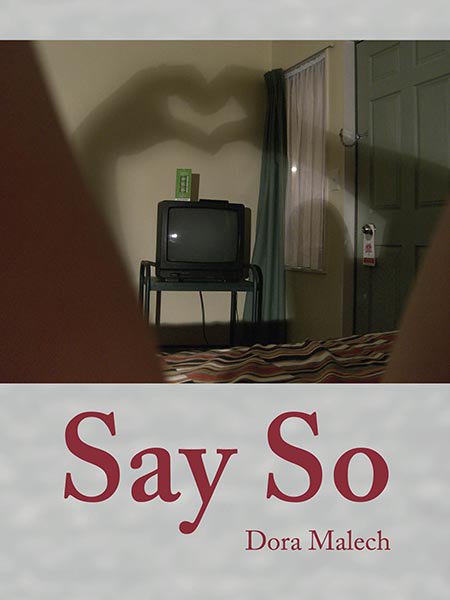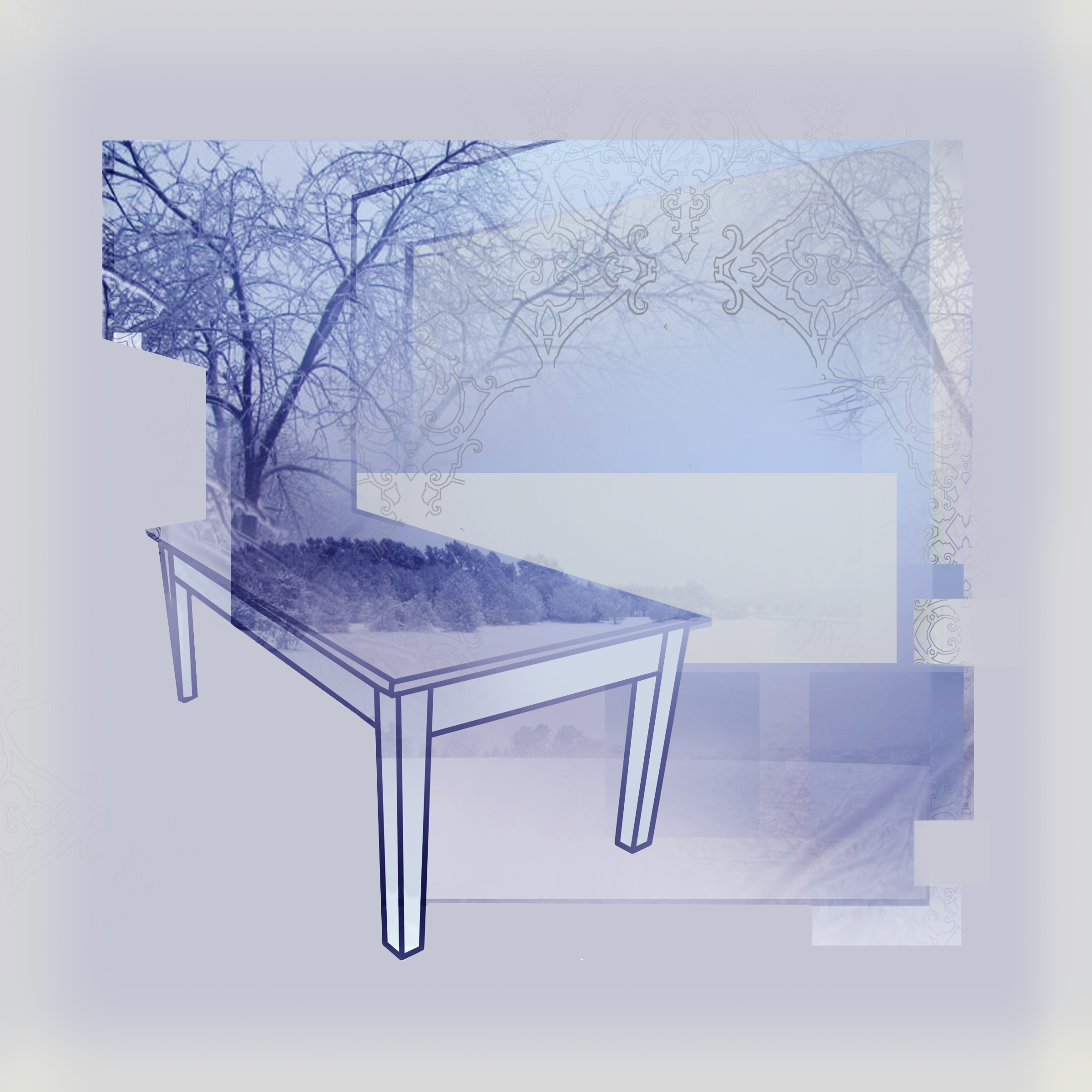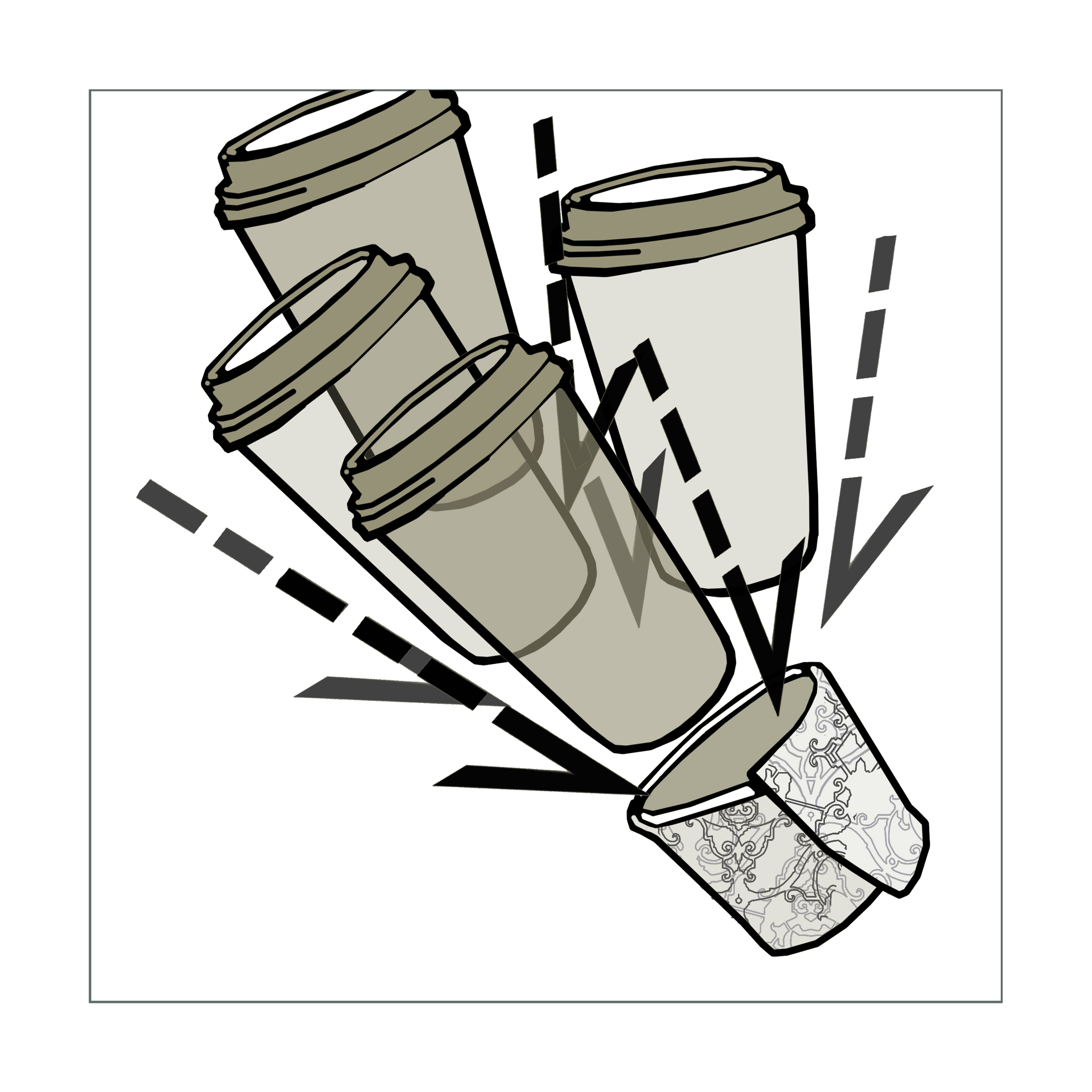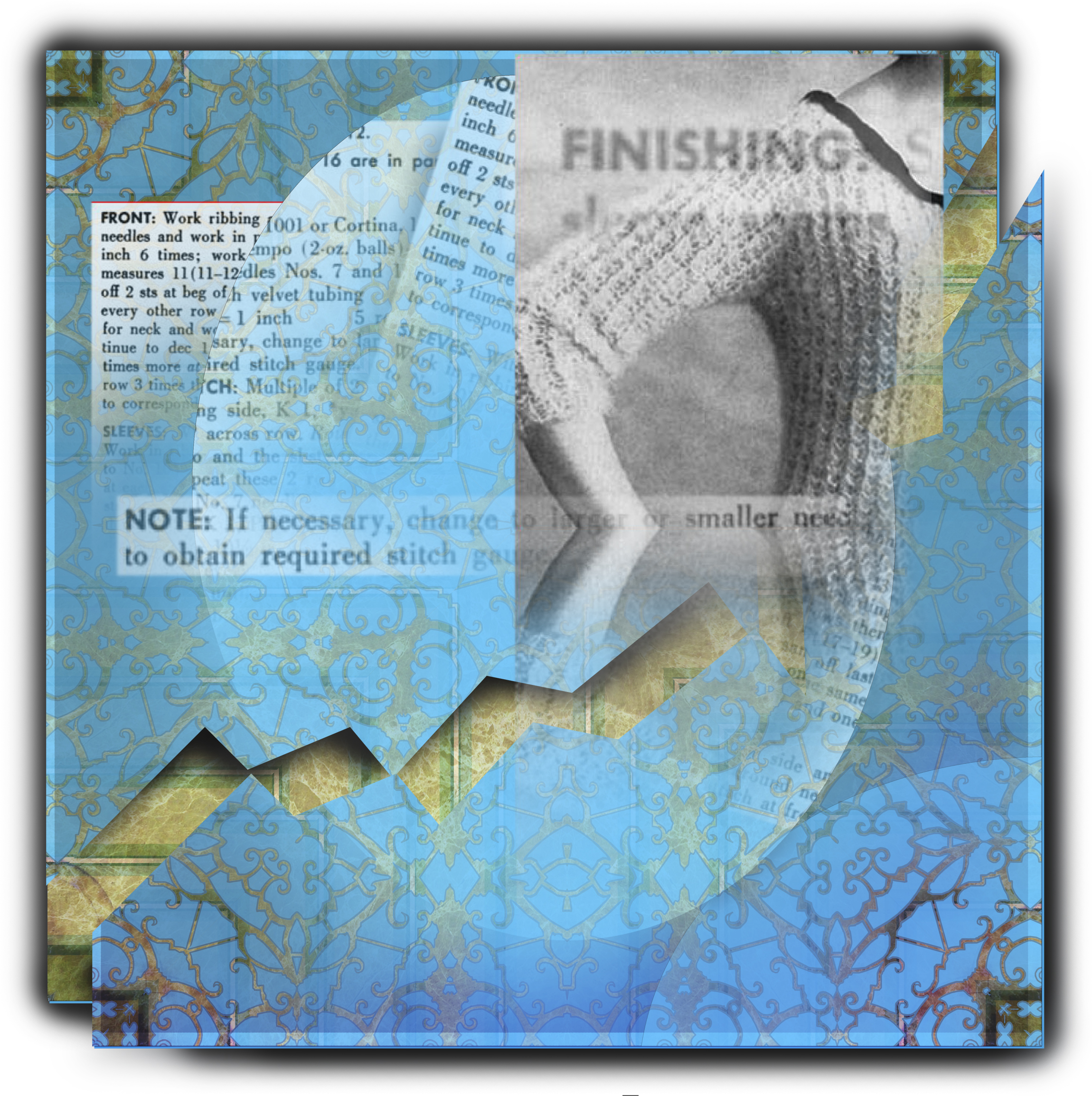
Illustration by Morgan Maurer, 2011
My first night on Pleasure Island, I whiskeyed myself up on the deck of a condo and watched waves pound the beach where the bodies of Confederate and Federal troops had been blown to smithereens.
I’d promised Copeland—my former brother-in-law, the man whose condo I’d commandeered—that under no conditions would I drink. It was a stupid thing to say, but I’d said it early in the morning, which meant it didn’t count. Most mornings, I’m aswarm with promises. No more this, no more that. Of course, the changed man bit lasts about half a day. I blame the sun. Post-zenith, it tends to slope downwards. This downslope takes everything it touches and makes it boozeworthy. As my daddy used to say: drink, drink, and drink some more, for tomorrow we die. But tomorrow, more often than not, we do not die. Tomorrow we wake with blood in our shorts and a toothache of the heart, to make promises that seem keepable, until the downslope awakens our indefatigable whims.
My bottle was empty. I flipped it into the dunes, where it shushed in the grass. I felt grandiose, famished. I would’ve spooned the contents of a mayonnaise jar into my face if there’d been any, but Copeland stocked only salt, pepper, sugar, and chamomile tea. So I shuffled three blocks to a shack reeking of grease, ordered a cheese sandwich and a Wild Turkey, neat.
That night, this bar’s Magnavox blazed with some self-congratulatory bullshit about sexual predators. A host with a face based loosely on the face of a human had made himself available over the internet. There, he’d claimed to be a thirteen-year-old girl who wanted to party; now he hosting of a sting operation. Guys streamed into a McMansion and Host confronted them, and they either prayed for mercy or claimed they’d brought condoms and beer to teach the girls a lesson. Afterward, the cops, wearing bulletproof vests, threw them to the ground, read them their rights. I told the bartender the only way I’d continue to watch this trash was if Host snipped off their cocks and crammed them down their throats. Easy, my neighbor said, some young buck with clippered hair and tatted arms, the usual bozo who thinks because he’s lifted some weights he can police whatever vicinity he finds himself in.
I knew from experience that guys like him were all mouth and flabby muscle. Problem was, they hadn’t spent much time in the ring; their jaws were champagne-flute glass. So what if you were an old sack of jellied gristle. If you’d survived a few bouts and owned a switchblade you’d been carrying since ’82, you had a better than average chance.
“Once upon a time,” I said, “a bastard hacked my daughter to pieces.”
“Sorry to hear that,” the young buck replied.
“That’s not the story,” I said. “The story is that ten years later, I watched that bastard die. And you know what? I liked it. In fact, when they flipped the switch and his body started flopping, I cheered. But it turned out cheering wasn’t the thing to do. My rejoicing carved out a nasty hollow. It taught me something. Take no pleasure in the harm you mean to have done.”
“Sir,” the young buck said. “Get out of my face.”
I flipped out the blade. The guy raised his hands.
“That’ll do,” the bartender said. He was all skin and bones, with a face that suggested he might’ve tasted a restroom floor. And at the end of his tanned, hairless arm, there was a polished .38.
I tossed a ten on the bar, said keep the change.
~
Like a true hot shot, I woke up in the sand, among broken seashells and cigarette butts and ice cream wrappers and those plastic discs you snap on the tops of soda cups. I dragged myself into a sitting position, smacked ants from my legs, and stared at the churning sea. It occurred to me that Primordial Man might’ve watched a similar sunrise bleed across this same froth. He had not, however, smelled doughnuts, and that was one of a few things I could think of that separated his world from mine.
On the boardwalk, House of Doughnuts had raised its garage door and was ready to serve. The woman manning the counter was a tall, haggard granny wearing a knee-brace, already sweating. On wobbly legs tattooed with Looney Tunes, she retrieved a sack of fried dough for the last guy that needed one, a fatso wearing a red Redskins sweatshirt with the sleeves ripped off, a man who nodded and smiled at me, making me feel shitty for having silently cursed his bovine physique.
“Need help?” Granny asked.
“I’m thinking,” I said. The menu couldn’t have been simpler. To eat: doughnuts, glazed. To drink: milk and coffee, small or large. They didn’t take American Express—only cash. I was about to ask for a sample, when a girl trotted in, maybe twelve, no more than thirteen. Blonde braids. Brown, calflike legs, unshaven, adorned with thousands of golden hairs. To say she was a duplicate of my daughter would be saying it wrong. She was my daughter. Which meant she’d either come back from the dead, or I was really bad off.
The girl ordered a dozen doughnuts. Looney Tunes Legs fetched them in no time. So. Not a ghost. I was bad off. Worse than I’d thought. She unwadded a few bills for the granny. I followed her out. I tried to stay at a safe distance, or maybe I didn’t, because I caught up to her, tapped her shoulder. She whirled around; a braid-tip brushed my outstretched hand. A harrowing sight I made for sure, a scorched lump, aglitter with sand. But she didn’t scream. Squinting, she waited for me to explain.
“I’m sorry,” I said. “For a minute I thought, maybe.”
“What?”
I knelt. The earth was tilting. The Lord, I figured, trying to knock me down. “I thought,” I wheezed. “You were somebody.”
“You okay?” She pulled a phone from her hoodie pocket. “I can call 911.”
I shook my head. “It’s just the downslope.”
She frowned.
“Forget it. I’m old,” I explained.
“Angela,” a voice said. A man stood at the other end of the alley.
“You don’t look that old,” she said.
“Angela Simmons!” the voice said again.
“I gotta go,” she whispered. She jogged toward the voice, which belonged to a dude laden with muscle, wearing a baseball hat, sunglasses and Croakies. He yanked her by the arm, a gesture she’d hold onto, to fuel some misplaced father-hate. She couldn’t understand how he needed to feel like he was in charge. Like he had the power to save her. It was a feeling no man could spoil. Unless one came along and did.
I pledged to stay away from the boardwalk. Half an hour later, I still hadn’t left. Slumped in the bucket seat of a race-car game, watching the monitor advertise itself, I was going nowhere, fast. I had yet to make my mark. Across the room, a toddler sporting fake fangs rode a mechanical, sombreroed donkey. The girl, the one from before, stood beside him. She looked bored. She wiggled a foot from one of her sandals, used it to scratch the back of her other leg. She caught me watching and raised her hand. I didn’t wave back. She approached.
“Are you feeling better?” she asked. This touched me. It angered me.
“You shouldn’t talk to people like me,” I said.
She blinked her blue eyes. Her tongue poked the inside of her cheek. My chest prickled, as though a fuse had been lit there. “What kind of person are you?”
“The kind to avoid.”
“Do you know Jesus?” she asked. She had a plastic spider ring on one of her fingers. Her lips gleamed with gloss.
“I’ve heard the name.”
“Well, you should know that He’s real and He loves you.” She opened a coin purse smothered with stickers of wild safari animals, retrieved two quarters and dropped them into my slot. “People should stop being afraid of each other,” she said.
On the screen, numbers counted down: three, two, one. A green light lit up, and all the cars but mine took off. I stomped the gas. “It might seem okay to think that now,” I said, “but what if the unthinkable had a mind to descend?” She didn’t answer. I glanced behind me. She was gone. The little mechanical pony was still going, riderless. My car—a yellow Lamborghini—burst into flames.
At House of Doughnuts, a new waitress manned the helm. Buxom was the word for her, big in all the places where you want big to be, except for the eyes, which were about three sizes too large, and a chin that seemed embarrassed by its weakness. The eyes I could deal with, as long as I didn’t have to look into them. Her flesh was a luxurious brown, peppered with melanomas. Brown hair waterfalled to her ass, shivered when she walked. I waited on a stool. She took care of the others, approached me.
“Where’d Looney Tunes go?” I asked.
“Looney Tunes?” she repeated, frowning and grinning.
“Tall granny? Had Bugs and Taz waltzing across her calves.”
“Mom?”
“Really?”
“That’s what we call her. I’m filling in. What can I get you?”
“One quart of whiskey.”
“How about a large milk?”
I gazed, unabashedly, at her bosom. “I haven’t got a dime,” I said.
Gloria winked. “How about we say this one’s on me.”
Gloria had an apartment two blocks from the beach. She’d refused to retire to my condo because it belonged to a man she didn’t know, who rented to people she didn’t know, particles of whom had likely been shed throughout, and she didn’t much care to breathe these particles, or converge with possible secretions. She’d seen a 20/20 where they hired a forensics team to dig around in a hotel room post maid-service. The team had discovered unfathomable particles and unspeakable secretions, and now it was difficult—impossible, even—for Gloria to inhabit private places where other people had lived.
The funny thing being this: she was a bird lady. I should’ve guessed by her dangly turquoise earrings she shared an apartment with such plumage-shedding, shit-producing creatures. The fecundity! I took a whiff before my eyes adjusted to the dark, and despite the tweets, thought pachyderm. The day before, Hurricane Season had officially begun, so Gloria whipped up some Category Fives—glorified Long Island Iced Teas. Gloria reheated a pot of vegetarian jambalaya; Michael, the African Grey parrot, perched on my shoulder and nibbled my ear. I was smitten. Okay, Gloria said, tell me your story, so I did, touching on my time at a boy’s school, how I’d pursued acting, made it as far as a toothpaste commercial, tried my hand as a stuntman, broke both my legs, met my ex-wife at a rodeo, tried real estate, made a fortune, went bankrupt. In short, I told her nearly everything. As a rule, I won’t bring up my daughter with people who don’t already know, unless I feel like wasting half a day circumnavigating their sympathies; it’s like letting someone else tear the scab off a wound that won’t heal. Instead, I told her what seemed as true as anything else: that my daughter was here on Pleasure Island, that it was a complicated story I might share someday, the most important part being that she’d been sent to live with another family, who’d insisted I never contact her again. Gloria pretended to believe me, inquired as to my condition, which I assured her was tolerable. We ate. We drank. We nuzzled. I was pleased to find Gloria’s massive legs were as muscular as they looked. I buried my face in her breast, which ponged of coconut. With her legs, she embraced me. I pumped like a drunken teenager; she acted like it was just the thing. Maybe it was. When the blubbering began, she didn’t inquire. She lapped at my tears, begged me not to stop.
Big surprise: swinging a metal detector feels too much like work, only less fruitful, especially if the battery’s dead. I’d found one in a closet at Copeland’s, figured it’d transform my pathetic beach-amble into something purposeful.
Also I’d filled the pouches of my shorts with airplane bottles of slightly impressive whiskey, charged to a credit card that was about forty dollars from maxed. I tinkled as I walked. Waves ate the beach. In fifty years, I predicted, all this would be gone. Then, I revised that figure to include the phrase “or less.”
The girl and her people lounged near the boardwalk, not too far from what appeared to be a family reunion of black folk, some of whom were playing volleyball without a net, while the less physically inclined—the swollen and possibly handicapped, wearing massive T-shirts—wallowed in the surf. The girl lay on a towel, next to a smaller boy who’d dug himself an impressive hole. Her parents, youngish and athletic, sat in the shade, wearing sunglasses with silver lenses. Their clothes rippled in the wind. Fifteen feet away, I swung my detector over a mound of incandescent seaweed, reading their lips. I didn’t catch much, except for when the father yelled at the kids, reminding them that if they wanted to see Bodyworks they had twenty minutes of beach time. I’d seen a flyer about this thing. People had died, science had claimed their bodies, stripped them of their flesh, snatched out their arteries and organs, shoved it all into the spotlight of a traveling freak show.
I approached the girl’s father. “Excuse me,” I said. “You believe in reincarnation?”
“Huh?”
“I didn’t believe in it, either, until recently.”
“Oh,” he said, raising his book. “We’re not interested, thanks.”
“Your daughter,” I said. “I had one like her.”
“Excuse me?”
“Keep an eye out. Because you never know. The worst stuff you’ve never thought is out there. The worst doesn’t wait for an invite, either. If I were you, I wouldn’t sleep a wink.”
“Get the fuck away from my family,” he said. He rose from his chair. This guy, unlike the guy from the bar, could’ve put me in my place. Instead, he unsnapped his phone, and punched some numbers. “I’m reporting you,” he said.
“Good,” I said. Message delivered. Whether he listened or not was up to him. Only he could protect that angel from the hands of an animal who had nothing left to live for, except to hold another man’s daughter in his arms.
What I found, with the detector turned on: squat.
At Copeland’s, I opened a little book that’d been left, by his wife I presumed, for renters to record their flattery. Everyone loved the beach! And the house? The décor was fab! Michael’s seafood was awesome. House of Doughnuts rocked! Boy, were they were going to have to lose some weight after THIS vacation! I read every word of that shitstorm, a testament to the sweet oblivion of the unscathed, and spent the rest of the day trying to generate some compliment to pay Pleasure Island. I came up with one thing only, though my hand wouldn’t write it: I want you to sleep in my arms.
The next day, Gloria asked if I wanted to go see the bodies. Had I mentioned this to her? I had not. I took it as a sign and said yes. We drove her Cherokee to a convention center in Wilmington. Gloria looked alive and trashy in a way that commanded attention but caused people to ask: did that just happen? Bangles in her ears, a low cut top, shorts so short she had to keep tugging to keep her cheeks in check. I placed my hand on her lower back, to let everyone know whose side I was on.
A laminated card reminded viewers these bodies were not the bodies of executed Chinese prisoners, merely unclaimed Chinese. Every one lacked flesh. Their musculature had been stripped away, in some cases flayed. I remembered a dream where I died but the electricity stayed on in my brain. No body movements, eyes open, stared at what was in front of me. I imagined every body here cursed with a similar power. Bodies dead, brains alive, flickering with a lesser consciousness, a perpetual state of perplexedness.
“My God,” Gloria said, to the flesh of an obese cadaver, which had been sliced into three sections to illustrate how fat was stored.
A woman in front of us, wearing a fanny pack, pointed to the ceiling, where a fleshless, bug-eyed woman with outstretched arms levitated. With my eyes on her teats—two blind and withered globes—I nearly tripped over another of the skinless bastards. It took me a second to figure out he was kneeling in prayer. His held his heart—or maybe somebody else’s—in his hands. “Promise me something,” I said.
“Shoot,” Gloria replied.
“If I die in the next ten minutes, have me burned to a crisp. Fertilize your garden. Line your bird cages.”
“Please.”
“I suppose you’d prefer me to get all dolled up, stuff me into a box?”
“I’d prefer you to be eaten,” she said. She grabbed my hand, started gnawing an index finger.
“I don’t expect you’d like my taste.”
“Not by me, retardo,” she said. “Birds.”
“Yours?”
She shook her head. “Too finicky. Turkey vultures, though? Turkey vultures would get the job done.”
I took a break from the exhibit to conjure a vulture-beak. It scooped out one of Gloria’s eyeballs.
“You okay?”
I wasn’t sure. I felt like I had somewhere to get to, someplace I didn’t want to visit. I pointed to her purse. “You got any booze in that thing?”
“You want a Midol?”
“I’m not menstruating.”
She pressed the back of her hand to my forehead, pronounced it clammy. “I could really use a drink.”
“Take deep breaths,” she said. “Close your eyes.”
I nodded.
“Think about something nice.”
My daughter appeared. She was a baby, maybe four. She was asking me how much I loved her. This was a game of ours. A pastime. She’d ask how much, I’d yell a gazillion! I’d ask her how much she loved me and she’d yell sixty! Wow, I’d say, sixty’s a lot.
“Is sixty a lot?” I ask.
“It depends.”
“Wrong,” I say. I swallow. The back of my throat tastes like snot. “Sixty’s not a lot. Sixty’s nothing. I’m ten years from sixty now. That’s six times the number of years my daughter breathed the air of this earth before she was slain.”
I hadn’t meant to include this part. But I’d been staring at the muscle-threads of a man carrying his own skin—like a coat—over his arm, and my mouth, as usual, had a mind of its own.
Halfway through the exhibit, Gloria and I found an oasis: a bamboo café. At the counter, an adolescent boy with a Mohawk dispensed coffee and offered us free chunks of nut-infested brownies. We sat at a wobbly table, its unwiped surface agleam with the residue of spilt beverages. I took one sip, and scalded my tongue. The story arrived like a deluge.
Once upon a time, a man and a woman made a child. The child wasn’t perfect. In fact, the child was, for the first two years of its life, a terror. Never satisfied, threw tantrums, the whole bit. Toddlerhood, however, transformed her. She learned how to speak. She didn’t lose the mean-spiritedness, which she’d inherited from her father, but she loved to talk, to tell her parents how much she loved them. She loved to love, loved to be loved. She’d don her Snow White mask, listen to the man’s heartbeat through a fake stethoscope, shake her head gravely, and say: you haven’t had enough kisses today.
One day, another man—a neighbor, no less—invited this child into his truck. Something had happened, he’d said, to her parents. But nothing had. What’d happened was he had dreamed of performing unspeakable acts upon the girl’s body, before her death, and after. And that’s what he did. Six days went by. On the seventh, a fisherman found the girl’s hand bobbing in a river. Cops were summoned, parents were summoned, the body was identified, the predator nabbed, the funeral performed and forgotten.
In the years that followed, the woman was the one who proved herself. She wept often, but not always. She slept at night, got up in the morning. She found ways to go on, move on, get past, overcome. Meanwhile, the man lay in bed, grinding his teeth like he had a mouthful of glass. She’d tell him to go on, and he’d go on, out somewhere, into whatever building had its doors open and encouraged the worst habits money could buy. Eventually, the woman moved west with an aspiring soul-winner, sent postcards from the desert imploring her ex to get personal with the Lord. For a while, the man did get personal. He cussed the Lord like you would a family member. Then, one day, the Lord broke the news: a daughter who’d been hacked to pulp can’t be buried. You will carry the pulp with you. That pulp was your heart. It would lend no hand with sympathy.
It wouldn’t let me die.
Gloria’s fingers—her talon-like nails shellacked with paint—fanned her eyes, as if casting a spell on her face. Her lips turned inward.
“Don’t,” I said, “You’re not pretty when you cry.”
“Baby,” she replied. “Don’t be mean.”
“I’d have to die first,” I said.
Gloria put her lips to my ear. “I want you inside me.”
“I’ll allow it,” I said, “on one condition.”
“Anything,” she said.
“No matter what transpires, you won’t shed a tear.”
She said she’d promise me nothing. I knew then she was mine.
~
We had a whole floor to get through—bodies playing poker but not, bodies running but not, bodies conducting an orchestra and posing like the Thinker and riding the flesh-stripped bodies of horses but not—and then, after the exit, the harsh light of a downsloping sun. How much of us it would fail to reveal? Only time would tell. Right now we had bodies to view, some whole, some not, some torn down the middle. We had bloated hearts and charred lungs and shriveled peckers to size up. We had shudders to inhabit. We had conversations to overhear: my uncle had heart disease; epidermis is your largest organ; I knew someone with a hydrocephalic child; I happen to think we’d be beautiful without skin!
I looked for the girl I’d seen before, the one who looked like my daughter. I told Gloria what she looked like, told her to alert me should one like her make an appearance. Look out for braids, I said. Strawberry-colored barrettes. Baby fat. Brown limbs and crooked teeth. A propensity to rely on fingers when counting. An insatiable love for animals, especially those injured, made lame, or missing a leg or three.
I had no reason to dream. I had no business envisioning a new era, where everything vital would come back from the dead. But, I told myself, I was keeping my eyes open. Peeled, as they say.
But back at her apartment, Gloria wanted them shut. She had a present for me, and this present required a blindfold. I lay prostrate-side-up on her floor, like she asked. Also: my clothes were gone, removed by Gloria herself. I was a little afraid, and said so.
“Don’t be,” Gloria said. I heard bird-peeps, the squeak of cage doors flung open. “Relax,” she said.
“Impossible,” I replied.
“Then pretend. Pretend like you know how to relax.”
“Play dead?”
“Exactly.”
Soon, they were upon me. Their tiny bird-feet. Their claws. Their beaks, nibbling and nibbling. The little wings, feather-kissing my flesh.
“Move your hands,” Gloria said.
“I wish for that part of me to remain unpecked,” I said.
“Leave that to me,” she said. She climbed aboard.
The birds tweeted. One nipped at my ear, another at the cloth above my eyelid. Gloria rocked and rocked.
“Are we… too old… for babies?” I asked.
“Let me… get back to you…”
“Keep… getting… back.”
“Keep… inquiring.”
The air pulsed with bird wings. I hadn’t known she had so many. Maybe they weren’t all hers. Maybe they’d flown through the open windows, from all directions—from the land, from the trees, the sky, the sea. The screeches they made! A cacophonous song—one that, I suspected, was imploring their winged brethren to abandon the dead and rotting things of the world, so as to observe our fervent wallowing. We were, I was sure, a sight to behold: two withered creatures, laboring and laboring, blind with the belief we might make something new.
Matthew Vollmer is the author of FUTURE MISSIONARIES OF AMERICA, a story collection. He is the co-editor, with David Shields, of Fraudulent Artifacts: An Anthology of Pseudo-Interviews, Faux Lectures, Quasi-Letters, “Found” Texts, and Other Dubious Documents, forthcoming from W. W. Norton. Previous work has appeared in Paris Review, Epoch, Tin House, VQR, Colorado Review and elsewhere. He teaches creative writing at Virginia Tech and is at work on a novel. Read more of his work at http://www.matthewvollmer.com and visit his blog at http://matthewvollmer.tumblr.com.
Read our interview with Matthew here.










